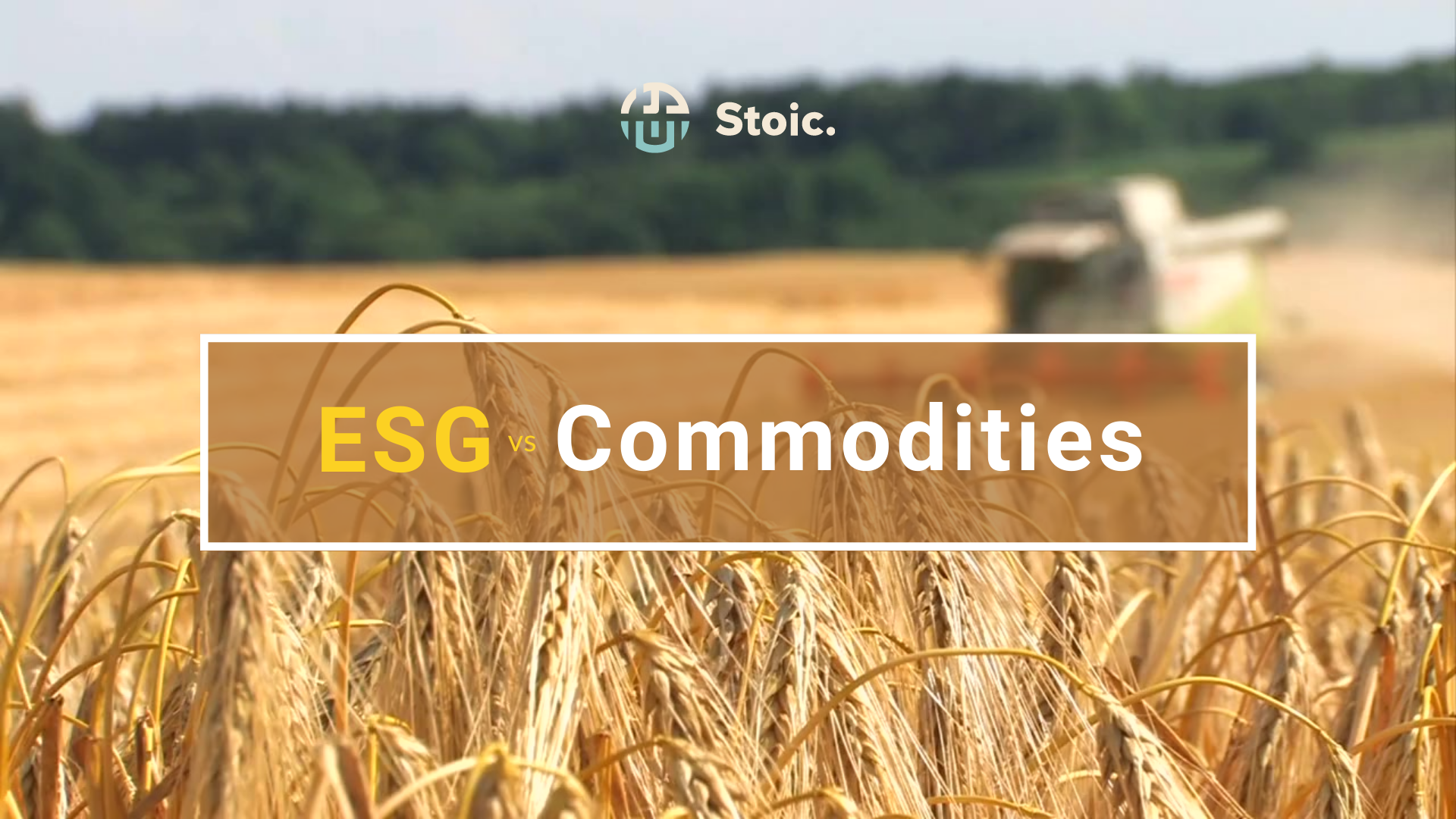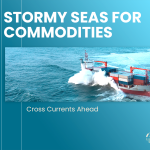The Final Battle: ESG vs Commodities

Anastasia Lais
Commodities and the Sustainability Transition
Commodities are a vital part of our daily lives, providing the raw materials and resources that fuel our economies and support our standard of living. From the food we eat to the energy we use; commodities play a critical role in shaping our world. Yet the way we extract, produce, and trade these commodities has significant environmental and social impact. The rapid pace of industrialization and globalization has put immense pressure on our planet’s resources, leading to declining ecosystems, loss of biodiversity, and the intensification of global warming.
Rise in ESG Concerns
Commodities, by their nature, can be both sustainable and unsustainable, depending on how they are produced and traded. Some commodity production methods can cause significant environmental harm and negatively impact local communities, while others are more sustainable and promote social and environmental responsibility.
For example, the production of some commodities, such as palm oil and soy, has been linked to deforestation, habitat destruction, and biodiversity loss. On the other hand, the production of other commodities, such as organic cotton and sustainably sourced timber, can promote environmental conservation and support local communities.
In recent years, there has been an increased focus on sustainable finance and ESG considerations in commodity trading. Investors are becoming more aware of the environmental and social impact of their investments and are seeking to invest in commodities that promote sustainability.
But is this in itself a sustainable trend? History has taught us that commodities upstream production has always had a tainted history. Cotton was a key commodity during the Industrial Revolution and provided impetus to the second wave of slavery in the US during the 19th century. Now, we see the same concerns over China with regards to Xinjiang, though to a lesser extent. Blood diamonds, blood cocoa, wildcat coal mining, leaching from mining metals – the history of commodities has literally been covered with corpses. Have ESG concerns finally surpassed economic considerations then one might ask.
Impact of ESG on in Commodities Trading / Portfolios
How will ESG impact the trading of commodities as we know it today? Factoring ESG concerns into commodities trading can increase transparency and accountability. By considering ESG factors in commodity production and trade, companies and investors can better understand the sustainability risks and opportunities associated with a particular commodity, and make more informed investment decisions.
While hugely unpopular given the current inflationary climate, ESG considerations place a premium on sustainably produced goods. For example, sustainably sourced coffee and palm oil are often sold at a premium compared to conventionally produced products. The Rainforest Alliance and the Roundtable on Sustainable Palm Oil (RSPO) are organizations that provide sustainability certification for coffee and palm oil, respectively. Businesses may also face increased costs if they need to implement due diligence processes and procedures to ensure compliance with ESG regulations and standards which can collectively drive-up commodities prices.
| COMMODITY | Sustainability Certification Organizations |
|---|---|
| Coffee | Rainforest Alliance, Fairtrade, UTZ Certified |
| Palm Oil | Roundtable on Sustainable Palm Oil (RSPO), Green Palm |
| Soybeans | ProTerra, Round Table on Responsible Soy (RTRS) |
| Sugar | ProTerra, Round Table on Responsible Soy (RTRS) |
| Timbre | Forest Stewardship Council (FSC), Programme for the Endorsement of Forest Certification (PEFC) |
| Cotton | Organic Trade Association, Global Organic Textile Standard (GOTS) |
Banks are starting to offer customers ‘green’ and sustainability linked loans. Green loans are aimed at funding green projects. For the commodities sector this can include commitment to decarbonisation. On the other hand, sustainability linked loans are more flexible, the loans are structured to incentivise the achievement of sustainability targets and companies may be eligible for interest rate reduction when their sustainability targets are met; these loans encourage more responsible sourcing and farming of commodities.
Lastly, ESG considerations can also influence the regulatory environment, as governments and regulators increasingly seek to promote sustainability in the commodities sector. For example, regulations requiring companies to disclose their ESG performance can increase the transparency and accountability of commodity production and trade. Further transparency has been built with the rise of climate exchanges such as the European Climate Exchange (ECX) – a leading European platform for trading carbon credits and other environmental products which operates as part of the Intercontinental Exchange (ICE) – a traditional commodities exchange. Exchanges provide a more transparent and secure marketplace than the OTC market for the trading of carbon allowances under the European Union Emissions Trading System (EU ETS), as well as other environmental products such as Renewable Energy Certificates (RECs) and Certified Emission Reductions (CERs)
Conclusion
Ultimately, the impact that these companies will have on the future of commodities trading will depend on a number of factors, including the rate of adoption of sustainable finance and ESG practices, the regulatory environment, and the level of investment in sustainable commodities. However, it is clear that companies driving sustainability in commodities have the potential to play a critical role in shaping the future of the commodities sector and driving the sustainability transition.
Disclaimer
Please refer to our terms and conditions for the full disclaimer for Stoic Capital Pte Limited (“Stoic Capital”). No part of this article can be reproduced, redistributed, in any form, whether in whole or part for any purpose without the prior consent of Stoic Capital. The views expressed here reflect the personal views of the staff of Stoic Capital. This article is published strictly for general information and consumption only and not to be regarded as research nor does it constitute an offer, an invitation to offer, a solicitation or a recommendation, financial and/or investment advice of any nature whatsoever by Stoic Capital. Whilst Stoic Capital has taken care to ensure that the information contained therein is complete and accurate, this article is provided on an “as is” basis and using Stoic Capital’s own rates, calculations and methodology. No warranty is given and no liability is accepted by Stoic Capital, its directors and officers for any loss arising directly or indirectly as a result of your acting or relying on any information in this update. This publication is not directed to, or intended for distribution to or use by, any person or entity who is a citizen or resident of or located in any locality, state, country or other jurisdiction where such distribution, publication, availability or use would be contrary to law or regulation.





